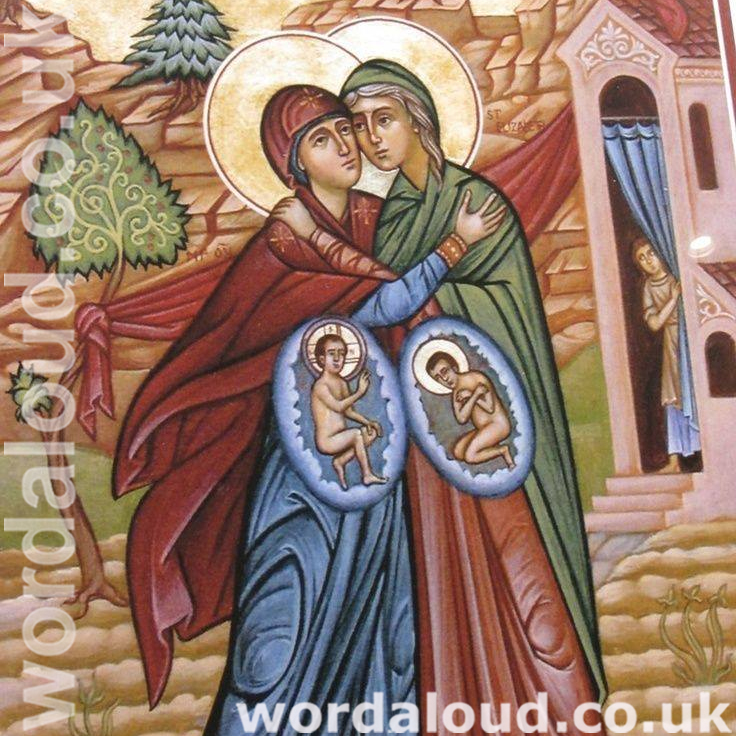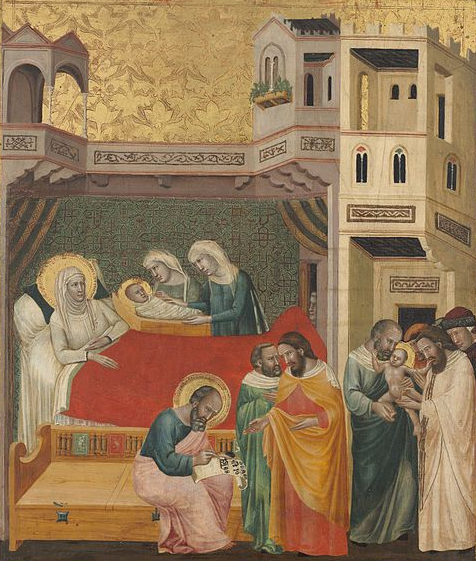The Gospel Of Saint John – Chapter 18
The Gospel Of Saint John – Chapter 19
This is the Passion and crucifixion of our Lord Jesus Christ. For us all, this is a tremendously saddening and painful part of our Easter journey, as, in a sense, we die again with Jesus to be reborn on Easter Sunday. The church is dark. There is an emptiness to the building as Jesus rests. Through this time, we acknowledge our need for Jesus and pray that he may come again to be with us.
In the face of Judas’ betrayal, Jesus openly and honestly acknowledges himself to those who are come to arrest him. ‘I am he.’ Jesus does this three times, even while those who have come to arrest him shrink back from such simplicity of giving. The courage of Jesus at this point is absolutely remarkable. Jesus has reconciled himself through prayer to his Father. His self-composure at this point as he goes to save us is a shining example to us all.
Peter’s impetuousness shows again as he draws his sword to attack those who have come to arrest Jesus. It is a natural and human reaction, but Jesus tells Peter to recall all that he has taught him: Jesus must be taken and go to the cross; that is why Jesus is here. Peter must continue to learn his place within God’s plan of salvation.
When Jesus is questioned by his accusers, in the court of the high priest, he is similarly open and honest about what he has done. He tells them that he has taught openly in the synagogues and the Temple, really showing them up to their own conscience; they know the truth, and yet they persist in denial and in the expediency of murdering Christ, for their own selfish ends.
The Jewish authorities pass Jesus on to the Roman authority, to Pilate. They wish it to be seen that Jesus’ death will be for reasons of politics, and so under the aegis of the occupying power, rather than being a matter of faith and religion, indeed of Jesus’ challenge to the Sanhedrin and his overwhelming of the Old Law. This is disingenuous on the part of the Jews. They are lying as they give Christ over to be tried and punished. By seeking to have Jesus crucified, rather than stoning him, they are seeking to pass on the responsibility for Jesus’ death to the Romans, to turn a religious charge into a political matter with which the Romans must deal.
Pilate knows that Jesus is innocent. Through these verses he repeatedly asks Jesus to save himself by advocating his own innocence. This Jesus will not do, because he must die. Even after Pilate has had Jesus scourged, an ordeal which would in itself have killed many, and when the soldiers have mocked him with the purple robe and the crown of thorns, and when he has set this now, to look at, abject figure of our Lord before the Jews, he still knows that Jesus is innocent
Pope Saint John Paul II writes: ‘When Jesus Christ himself appeared as a prisoner before Pilate’s tribunal and was interrogated by him… did he not answer: “For this I was born, and for this I have come into the world, to bear witness to the truth”? It was as if with these words… he was once more confirming what he had said earlier: “You will know the truth, and the truth will make you free.” In the course of so many centuries, of so many generations, from the time of the Apostles on, is it not often Jesus Christ himself that has made an appearance at the side of the people judged for the sake of truth? And has he not gone to death with people condemned for the sake of truth? Does he ever cease to be the continuous spokesman and advocate for the person who lives “in spirit and truth”.’
This is among the moments that we most contemplate. Jesus has offered his innocence to the Jews and to Pilate, he has been terribly punished already, whipped and mocked and spat at. He has now said to Pilate that, while he is King, his Kingdom is not of this world, that he is truth. Pilate has seen that there is no fault in Jesus. Now Jesus is presented to the people. Behold the man! He stands, already physically crushed, with his purple robe and his crown of thorns. This is the person of our God whom we worship.
And the crowd roar: ‘Crucify him!’
Still Pilate wishes to release Jesus. Pilate questions Jesus further. The cry resounds again: ‘Crucify him!’ And so Pilate hands over the blessed body of our Lord to be crucified.
We behold our Lord upon the cross. There are no words here, only our silence, and our complete self-knowledge as we behold our crucified Lord. We pray through these days to be a part of his suffering, to die with Jesus so that we may live with him and in him. We think of and utterly reject our sins as we contemplate the crucifixion.
May God have mercy upon us. May we be welcome to the eternal supper of our Lord. May we rest in peace.
‘Moses said: “Sacrifice a lamb without blemish and smear the doors with its blood.” What does this mean? Can the blood of a sheep without reason save man who is endowed with reason? Yes, Moses replies, not because it is blood but because it is a figure of the Lord’s blood. So today if the devil sees, not the blood of the figure smeared on the doorposts, but the blood of the reality smeared on the lips of the faithful, which are the doors of the temple of Christ, with all the more season will he draw back.’ St John Chrysostom
Audio Bible KJV | Endnotes
The crucifixion of Jesus was not just a historical event, but a manifestation of God’s love in its purest form. The act of self-emptying love, in which Jesus took on the burden of humanity’s sin and offered himself as a sacrifice for their salvation, demonstrated God’s unconditional love and mercy.
The apostle Paul wrote in Romans 5:8: ‘But God demonstrates his own love for us in this: While we were still sinners, Christ died for us.’ Through the crucifixion, God showed that he loved humanity even when they were still in their sin, and that his love is so great that he was willing to die for them.
The crucifixion of Jesus also has the power to transform individuals who contemplate its message. When Christians gaze upon the cross, they are transformed by the love of God and become more loving and compassionate individuals who better reflect the image of God.
Colossians 1:20-22 states: ‘And through him to reconcile to himself all things, whether on earth or in heaven, making peace by the blood of his cross. And you, who were once alienated and hostile in mind, doing evil deeds, he has now reconciled in his body of flesh by his death, in order to present you holy and blameless and above reproach before him.’
Through the crucifixion, God reconciled humanity to himself, making it possible for humanity to be transformed into holy and blameless individuals, living in peace and harmony with God.








